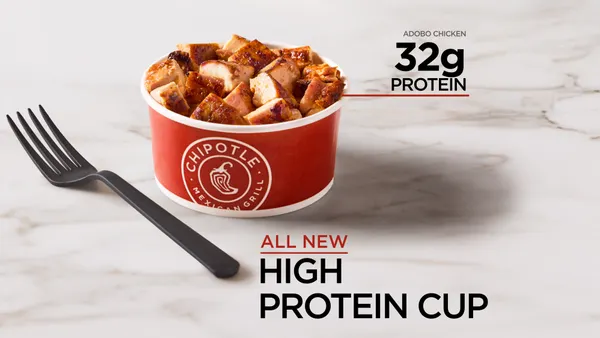Consumer behaviors around food have shifted during the pandemic, both at home and with meals eaten out of the house. In both environments, there's an increased desire for familiar comfort foods. For example, restaurant delivery services have reported greater frequency of home delivery of comfort foods, such as chicken sandwiches and pizza. However, conversations around self-care, wellness, and better nutrition to support immune health have increased as consumers try to manage their health and wellbeing. In fact, more than half (54%) of all customers say the healthfulness of their food choices matters more now than it did in 20101.
In an effort to better understand consumer sentiment around food and nutrition during the pandemic, particularly when it comes to making food decisions when ordering from restaurants, a national consumer survey polled 2,000 Americans in August of 20202. The study focused on customers of quick-service restaurants (such as McDonald's, Popeye's, Arby's), defined as those who have visited such an establishment at least once in the past 12 months.
Customers Don't Want their Favorite Fast-Food Order to Change
- 8 out of 10 say taste comes first
- 71% feel good about the menu choices currently available
- 7 out of 10 would be upset if recipes changed
As expected, 8 out of 10 Americans put taste first when deciding what to order at a quick-service restaurant, with 71% saying they feel good about the choices available. This was consistent for customers of all individual restaurants.
An almost equal number, 7 out of 10, further stated that they would be upset if the recipes of their favorite foods changed. They want to know that their order today tastes just as delicious as their previous one. Whether this desire for consistency and certainty was amplified during the pandemic was not evaluated.
Clean Label Doesn't Matter Much
Survey respondents were specifically asked about the ingredients in their favorite menu items and whether claims such as "free-from" or "no artificial dyes" were important in their decision making on where to eat and what to order. While 63% of people reported that they know what ingredients are used in the foods they typically order, only 1 in 3 looks at the ingredient list often or all of the time.
When asked what ingredients they want to avoid, the top responses related to the nutritional attributes of the recipes, such as fat, sodium, and sugar. Ingredients typically associated with a clean ingredient label, such as free-form additives and preservatives, were infrequently noted.
This is consistent with a July survey conducted by the International Food Information Council (IFIC). Of the 23% of respondents that reported avoiding certain ingredients when deciding what to eat and drink, sugar, salt, and fat topped the list. While this survey was not specific to decision making at quick-serve restaurants, the consistency in consumer sentiment suggests that clean label initiatives may be better directed at improving the nutrition profile of menu choices, particularly around fat, sugar, and salt.
Key Takeaways
The pandemic has upended numerous businesses around the world, perhaps none more so than the restaurant industry. Clarity around customer interests when ordering food out of the house can help restaurants and the allied industry make informed menu and marketing decisions during this challenging time. The aforementioned survey suggests that Americans are currently desiring consistency in product formulations, and any renovation efforts would be best focused on improving the nutrition profile of the product, specifically reducing fat, salt, and sugar, so long as taste is not compromised.
Ajinomoto's portfolio of savory flavor-enhancing food ingredients and food solutions can help fast-food restaurants harness the power of umami & kokumi to enhance great taste without sacrifice.
Contact our Solutions & Ingredients team to find the right solution for your project.
1 International Food Information Council Foundation
2 Edelman Intelligence, August, 2020.










